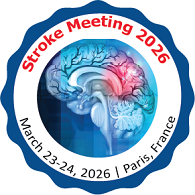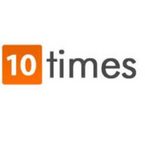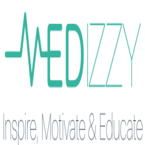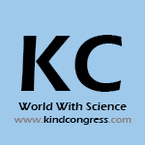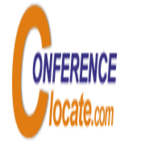About Conference
We welcome you to the 17th International Conference on Stroke, Neurology, and Cerebrovascular Diseases, taking place on March 23-24, 2026, in the enchanting city of Paris, France. This prestigious event, under the theme "Neurovascular Frontiers: Translating Precision Medicine into Clinical Stroke Care," promises to be a groundbreaking platform for sharing cutting-edge research, advancements, and insights in the field of neurology.
Neurological disorders, such as strokes, remain a global health challenge, affecting millions of individuals worldwide. The conference aims to explore the potential of precision medicine, revolutionizing the way we approach diagnosis, treatment, and management of neurological conditions. By understanding the unique genetic, molecular, and environmental factors that contribute to individual patient variations, we can optimize therapeutic strategies and improve patient outcomes significantly.
Distinguished experts, researchers, and clinicians from around the globe will converge to present their groundbreaking studies, clinical trials, and innovative treatment approaches. Engaging keynote lectures, interactive workshops, and poster sessions will foster enriching discussions, collaborations, and networking opportunities.
Attendees will also have the chance to explore the beautiful city of Paris, known for its rich history, cultural heritage, and world-renowned landmarks. The conference offers a perfect blend of scientific excellence and cultural immersion.
We invite all neurologists, stroke specialists, researchers, and healthcare professionals to contribute their knowledge and expertise to this momentous event. Together, let's pave the way for a brighter future in neurology, where precision medicine empowers us to provide tailor-made therapies, transforming the lives of patients worldwide.
Join us in Paris as we embark on this remarkable journey of discovery and advancement in the realm of neurology and cerebrovascular diseases. Be a part of this unparalleled experience and leave an indelible mark on the future of precision medicine in neurology. See you in March 2026!
Sessions & Track
Neurology is a specialized branch of medicine focused on the diagnosis and treatment of disorders affecting the nervous system, including the brain, spinal cord, muscles, and nerves. It covers key systems such as the autonomic, central, and peripheral nervous systems.
Neurologists diagnose and manage conditions ranging from epilepsy and multiple sclerosis to neuropathies and neurodegenerative diseases.
Neurosurgery, on the other hand, involves the surgical treatment of neurological disorders. Neurosurgeons are highly trained medical specialists who perform
complex brain, spinal, and peripheral nerve surgeries. Their expertise goes beyond brain surgery to include managing back and neck pain, trigeminal neuralgia, paralysis, and other neurological conditions. Advances in surgical techniques have significantly enhanced patient outcomes with minimally invasive methods and innovative technologies.
This session will address cutting-edge research,
clinical advancements, and innovative therapies in neurology and neurosurgery. Topics will include neuroimaging, molecular neuroscience, surgical techniques, and multidisciplinary approaches. Attendees will gain insights into the integration of surgical and medical management tailored to improving patient care. This track aims to enhance understanding of neurological diseases and the evolving role of neurosurgery within the wider context of neurological health.
Stroke is characterized by the sudden loss of blood flow to a portion of the brain, leading to neurological deficits. Strokes are broadly classified as ischemic, resulting from arterial occlusion, or
hemorrhagic, caused by vessel rupture. Understanding stroke syndromes enables precise localization of affected brain regions and elucidation of the vascular pathology, contributing to targeted treatment.
Cerebrovascular disease encompasses a group of conditions that impair the blood vessels supplying the brain, including atherosclerosis, thrombosis, embolism, and venous thrombosis. These pathologies can lead to strokes, transient ischemic attacks, and
chronic cognitive impairment.
This track will explore advances in stroke diagnosis, imaging, acute interventions such as thrombolysis and mechanical thrombectomy, prevention of recurrence, and rehabilitation strategies. New research on vascular biology and neuroprotection will also be highlighted. The session aims to equip healthcare professionals with the expertise to enhance clinical outcomes and reduce the global burden of cerebrovascular disease.
COVID-19, caused by the SARS-CoV-2 virus, not only affects the respiratory system but also causes significant neurological complications. Patients with
COVID-19 may experience encephalopathy, stroke, neuropathies, and cognitive impairment, contributing to increased morbidity.
Neurological effects of COVID-19 bear similarities to those observed in other coronavirus infections such as SARS and MERS but on a much larger scale due to the pandemic. The underlying mechanisms involve viral neuroinvasion, immune-mediated injury, and coagulopathy.
This session covers the pathophysiology, clinical manifestations, diagnostic challenges, and management of COVID-19-related neurological issues. Discussions will include long COVID
neurological symptoms, treatments, and rehabilitation approaches. It provides critical knowledge for clinicians and researchers confronting these complex complications.
Stroke occurrence in COVID-19 patients is increasingly recognized as a severe complication, influenced by factors such as age, comorbidities, and COVID-19 severity. Acute cerebrovascular diseases, especially ischemic stroke, have devastating outcomes across all age groups affected by the virus.
This track examines the interplay of clinical risk factors,
stroke phenotypes, and mortality related to COVID-19. It emphasizes the need for early recognition and management of stroke in infected patients.
Pathophysiological insights and therapeutic challenges will be discussed, helping healthcare providers mitigate mortality risks. The session highlights current research and clinical guidelines for optimizing treatment strategies amidst the pandemic.
Following an acute stroke, patients often face persistent deficits in physical, speech, and cognitive functions. Rehabilitation plays a crucial role in helping individuals regain lost skills, learn compensatory techniques, and improve overall independence.
Brain hemorrhage, caused by vessel rupture resulting in localized brain bleeding, leads to long-lasting injury requiring dedicated recovery efforts.
This session will focus on rehabilitation strategies encompassing physical therapy, speech therapy, cognitive rehabilitation, and psychosocial support. It will explore mechanisms of
brain plasticity and recovery potential, emphasizing tailored rehabilitation plans that maximize functional gains. The track aims to provide clinicians with best practices for supporting stroke survivors through comprehensive multidisciplinary care.
Ischemic stroke occurs when cerebral blood flow is blocked by a clot, depriving brain cells of oxygen and nutrients.
Transient ischemic attacks (TIAs) represent brief episodes of ischemia that resolve within minutes but signify high stroke risk.
This track covers
clinical features, diagnosis, imaging, and acute management of ischemic stroke and TIAs. It discusses secondary prevention approaches including antithrombotic therapies, lifestyle modification, and risk factor control. Attendees will gain in-depth understanding of stroke pathogenesis and current treatment paradigms.
Cryptogenic stroke refers to ischemic stroke without an identifiable cause despite thorough investigation. Accurate diagnosis is critical for effective secondary prevention.
Antiplatelet drugs inhibit platelet aggregation to reduce clot formation, playing a key role in managing stroke risk.
This session explores challenges in diagnosing
cryptogenic stroke, including emerging diagnostic modalities. It reviews indications, mechanisms, and latest evidence supporting antiplatelet therapy. The discussion will include multidisciplinary strategies involving neurologists, cardiologists, and other specialists to personalize treatment plans.
Assessment of stroke risk factors, including medical history, lifestyle factors, and comorbidities, is essential for prevention and management. Diagnosis often involves clinical examination, imaging, and laboratory studies. Medications such as anticoagulants and
antihypertensives are vital in treatment, while comprehensive patient care supports recovery.
This track provides an overview of stroke risk assessment, diagnostic protocols,
pharmacological management, and rehabilitation approaches. It highlights the importance of coordinated care in improving patient outcomes and reducing recurrence.
Cardiovascular diseases (CVD) involve the heart and blood vessels, including stroke, coronary artery disease, and heart failure. Specialized nursing care is crucial to monitor patients, manage risk factors, and provide education.
This session focuses on the role of cardiovascular nursing in preventing complications, managing acute events, and supporting recovery. It discusses
interdisciplinary collaboration and evidence-based practices to optimize patient care.
Heart failure occurs when the heart cannot pump efficiently, often due to underlying conditions like coronary artery disease or hypertension. It leads to symptoms such as fatigue, shortness of breath, and fluid retention.
This track covers
pathophysiology, diagnosis, and treatment of
heart failure and related heart diseases. Emphasis is placed on early detection, medical therapies, and lifestyle interventions to improve quality of life.
Cardiac arrest is a sudden cessation of effective heart function requiring immediate medical intervention. Recovery phases include acute care, mid-term rehabilitation, and long-term management.
This session discusses emergency response, post-arrest care, and strategies to support
cardiac function restoration. It also covers patient counseling and family support.
Geriatric cardiology addresses
cardiovascular health in the elderly, considering age-related physiological changes and comorbidities. Palliative care focuses on symptom relief and quality of life in serious illness.
This track explores management of cardiovascular diseases in older adults and integration of
palliative approaches to address complex care needs compassionately.
Cardiac nursing specializes in care for patients with heart diseases, requiring expertise in anatomy, physiology, and treatment modalities. Nurses play a key role in patient monitoring, education, and rehabilitation.
This session highlights advanced
nursing practices, current research, and innovations enhancing cardiac patient care.
Hypertension, commonly known as
high blood pressure, is often called the "silent killer" because it usually presents no symptoms until significant damage has occurred. Diagnosing hypertension frequently relies on routine measurements, as many individuals remain asymptomatic. Despite the absence of clear symptoms, high blood pressure is a leading risk factor for cardiovascular diseases and stroke, significantly impacting global health.
The relationship between hypertension and
cardiovascular health is critical. Hypertension exerts excessive mechanical stress on blood vessel walls, leading to damage, inflammation, and the development of atherosclerosis plaque buildup within arteries. This process narrows arteries, impeding blood flow and increasing the risk of both ischemic stroke and heart attack. Over time, hypertension can cause targeted damage to cardiac structures, such as left ventricular hypertrophy, which raises the likelihood of heart failure, arrhythmias, and coronary artery disease.
Management of hypertension involves lifestyle modifications, like reducing salt intake, increasing physical activity, and medication therapy, including
antihypertensive drugs. Research in this field continues to explore new treatment options, early detection biomarkers, and genetic factors influencing individual risk. The goal is to prevent the onset of cardiovascular disease, minimize stroke risk, and improve long-term patient outcomes through tailored interventions.
Neurophysiology investigates how the nervous system functions at multiple levels from cellular mechanisms to complex neural networks. Understanding the electrical impulses generated and propagated by neurons is fundamental to comprehending normal brain activity and diagnosing
neurological disorders. This discipline encompasses the study of the central and peripheral nervous systems, focusing on functions such as cognition, sensation, and motor control.
Neurodegeneration, on the other hand, refers to the progressive loss of neuronal structure and function, leading to debilitating neurodegenerative diseases like Alzheimer’s,
Parkinson’s, Huntington’s disease, amyotrophic lateral sclerosis (ALS), and Lewy body dementia. These disorders share common features such as cell death, protein misfolding, and synaptic dysfunction, which gradually impair brain function, memory, and mobility.
Research in
neurophysiology and neurodegeneration aims to uncover the underlying mechanisms of nerve cell death and network failure. Advanced imaging techniques, including functional MRI and PET scans, enable visualization of brain activity and degeneration patterns in vivo, facilitating early diagnosis and targeted therapies. Studying neuroplasticity the brain's ability to reorganize and repair itself—offers hope for rehabilitative strategies that harness the brain's innate capacity for recovery.
This session will explore recent advances in understanding nervous system function, insights into disease pathways, and innovative treatments aimed at halting or reversing neurodegeneration. It emphasizes the importance of integrating neurophysiological research with clinical application toward improving patient outcomes.
Neurological disorders encompass a broad spectrum of diseases affecting both the central and peripheral nervous systems, including the brain, spinal cord, cranial and peripheral nerves, autonomic nervous system, neuromuscular junctions, and muscles. These disorders manifest in various forms such as epilepsy,
Alzheimer's disease, multiple dementias,
cerebrovascular diseases like stroke, migraine and other headache syndromes, multiple sclerosis, Parkinson’s disease, neuroinfections, brain tumors, traumatic nervous system injuries, and neurological impairments due to nutritional deficiencies.
A key area of interest in this field is neuroplasticity, the brain's remarkable ability to adapt, reorganize, and form new neural connections throughout an individual’s life. This adaptive capacity allows neurons to recover from injury and disease, and dynamically adjusts brain function in response to environmental changes or new challenges. Harnessing neuroplasticity holds promise for rehabilitative medicine, offering hope for improved recovery in patients with neurological damage through targeted therapies and rehabilitation protocols.
This session aims to provide a comprehensive overview of the latest research into neurological disorders and neuroplasticity, emphasizing both the clinical manifestations and the therapeutic approaches that utilize the brain’s inherent capacity for self-repair. It will feature presentations on innovative treatment strategies, advances in neurorehabilitation, and implications for long-term outcomes in neurological patients.
Biomarkers are measurable biological molecules or genes that serve as indicators for diagnosing diseases, monitoring disease progression, and evaluating responses to therapy. Also known as molecular markers or signature molecules, biomarkers can be detected in blood, other bodily fluids, or tissues, providing critical information for
precision medicine.
The global biomarker research market is rapidly expanding, fueled by increasing prevalence of chronic and life-threatening diseases such as cancer,
cardiovascular disease, and neurological disorders. Biomarkers facilitate earlier diagnosis, reduce clinical trial costs by stratifying patients, and enable personalized treatment approaches. Increased investment from biotechnology and pharmaceutical companies, along with emerging research initiatives, continues to spur innovation in this field.
However, challenges remain, including high capital requirements, regulatory hurdles, reimbursement complexities, and variability in biomarker efficacy across populations. This session will address recent advances in biomarker discovery, validation, and clinical application, as well as discuss the economic and regulatory factors influencing their implementation in
healthcare. Participants will gain insights into how biomarkers are transforming clinical research and improving patient care.
Neuroscience is an interdisciplinary field devoted to the study of the nervous system, from molecular and cellular processes to complex behaviors and cognition. This discipline integrates knowledge from biology, chemistry, physics, and medicine to understand how the
nervous system develops, functions, and adapts.
Neuroimaging is a critical subfield that includes techniques used to visualize the structure and function of the nervous system in vivo. These include MRI, fMRI, PET, CT scans, and newer modalities that provide detailed anatomical and physiological information. Neuroimaging plays a pivotal role in the diagnosis, treatment planning, and research of neurological, psychiatric, and
neurodevelopmental disorders.
This session will highlight cutting-edge research in neuroscience, advances in imaging technologies, and their applications in clinical and research settings. Topics will cover functional brain mapping, neuroplasticity, neurodegeneration, and approaches to diagnosing neurological disorders with precision imaging. The session emphasizes how neuroscience and
neuroimaging synergize to deepen understanding and foster innovative therapies.
Dementia is an overarching term for a collection of symptoms that impair memory, daily functioning, communication, and cognition. Alzheimer’s disease is the most common cause of dementia, characterized by progressive neurodegeneration leading to memory loss, language difficulties, and cognitive decline.
While dementia can affect individuals at different ages, the risk markedly increases with age, though neither dementia nor Alzheimer’s is considered a normal consequence of aging. Distinguishing between various dementias and
Alzheimer’s disease is crucial for effective management.
Dementia is better understood as a syndrome a set of symptoms without a single definitive diagnosis. It involves impairments in multiple cognitive domains such as memory, reasoning, and executive function. Alzheimer’s disease, a progressive brain disorder, results in gradual cognitive deterioration and loss of independence. The exact causes remain elusive, and at present, there is no cure for Alzheimer’s, though treatments are available to help manage symptoms and improve quality of life.
This session will explore advances in understanding the pathophysiology, diagnosis, and treatment of Alzheimer’s and other dementias. It will highlight ongoing research into
biomarkers, therapeutic interventions, and supportive care approaches aimed at improving patient outcomes and quality of life.
Market Analysis
The field of stroke, neurology, and cerebrovascular diseases has witnessed significant growth and advancements in recent years. The increasing prevalence of stroke and related disorders, coupled with a growing aging population, has created a robust market for diagnostic and therapeutic solutions.
According to market research reports, the global stroke management market is projected to reach a value of USD 36 billion by 2025, with a compound annual growth rate (CAGR) of 6.1% during the forecast period. This growth is primarily driven by technological advancements in imaging techniques, such as MRI and CT scans, enabling early and accurate diagnosis of stroke and related conditions.
Furthermore, the increasing adoption of minimally invasive procedures for the treatment of cerebrovascular diseases, such as endovascular thrombectomy, has fueled the demand for neurovascular devices. The global neurovascular devices market is expected to exceed USD 2 billion by 2026, with a CAGR of 4.8%.
Innovations in neurology and cerebrovascular diseases, including the development of novel therapeutics and neuroprotective agents, have also contributed to market growth. Pharmaceutical companies are actively engaged in research and development to introduce effective treatments for stroke and related disorders.
Overall, the market for stroke, neurology, and cerebrovascular diseases is poised for substantial growth in the coming years, driven by technological advancements, increasing patient awareness, and a rising emphasis on early diagnosis and treatment.
